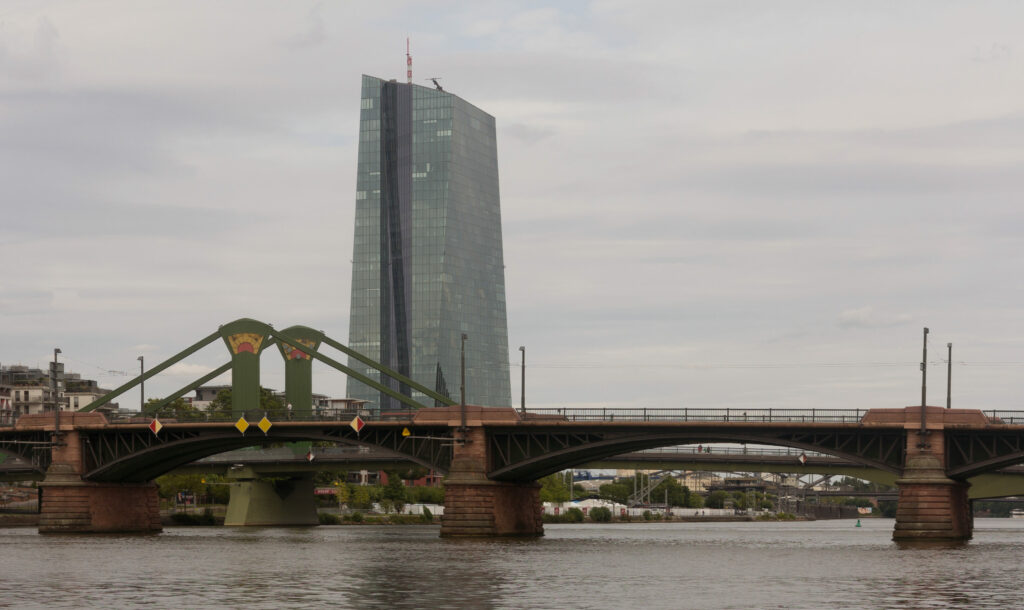The chief economist of the European Central Bank has given a strong signal that the regulator might cut interest rates next week, which would make it the first major central bank to do so.
In a bid to slow the momentum of spiralling inflation (caused by factors like the pandemic, disrupted supply chains and increased energy costs following the invasion of Ukraine by Russia), the European Central Bank (ECB) has raised its benchmark deposit interest rate ten times since July 2022 – from 0% to a record high of 4%, where it has remained since September of last year.
The ECB is due to meet next week, on 6 June, to discuss its next steps for monetary policy, and chief economist Philip Lane has given a strong indication that the bank will lower rates from their record peak.
Speaking at the Institute of International and European Affairs in Dublin on Monday, Lane said that if the ECB's monitoring of inflation make the central bank increasingly confident that it is stabilising at a more sustainable target level. This would make it "appropriate to reduce the current level of monetary policy restriction," Lane stated.
In a separate interview with The Financial Times (also published on Monday), Lane said that "barring any major surprises, there is enough in what we [the ECB] see to remove the top level of restriction". Speaking in Dublin, Lane highlighted that eurozone inflation fell from 5.2% in August 2023 to 2.4% in April 2024, while core inflation decreased from 5.3% in August to 2.7% in April.
Things can only get better
While inflation in the cost of services continues to be high, the economist pointed to "major declines" in the key categories of energy, food, and goods; he added that overall wage pressures have softened since last year.
The ECB expects inflation and core inflation to fluctuate around current levels for the rest of 2024 as the effects of energy price increases are still felt. However, it expects further disinflation in 2025.
Lane stated that disinflation will likely be aided by a reduction in labour cost pressures, the ongoing compression of unit profits, and a recovery from past energy shocks. He added that supply bottlenecks have been resolved since economies reopened after the pandemic. These factors combined with a less restrictive monetary policy stance should bring inflation down.
Related News
- Economic recovery gathers pace in Eurozone amid slowdown in prices
- European Commission brands Belgian economy 'resilient' despite challenges
- The deficit dilemma: Belgium's ballooning budget explained
However, Lane qualified that the ECB is not "pre-committing to a particular rate path" before the June 6 meeting, and any decision on cutting interest rates will be data-based.
He said that the pace of future rate cuts will be slower if there are any "upward surprises" with underlying inflation or demand, and conversely rate cuts could be faster if there are any "downward surprises".

